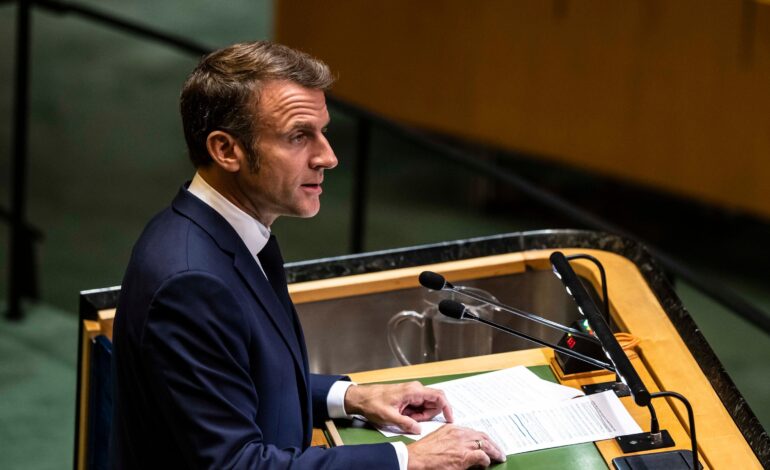
France Recognizes Palestinian Statehood: Macron’s Bold Move
In a historic move, French President Emmanuel Macron announced France’s decision to recognize Palestinian statehood. This marks a pivotal moment in international diplomacy, reflecting France’s commitment to peace in the Middle East. The recognition aims to foster dialogue between Israel and Palestine and rejuvenate efforts for a two-state solution.
Background of the Decision
The recognition of Palestinian statehood by France is a product of years of escalating tensions in the Middle East. France has long advocated for peace between Israel and Palestine, and Macron’s declaration is rooted in this historical stance. French diplomats have been engaged in numerous discussions over the years to set the stage for this consequential decision.
Impact on Israel-Palestine Relations
This announcement is expected to significantly impact the dynamics between Israel and Palestine. While some anticipate enhanced diplomatic conversations, others fear increased tensions. France’s recognition might act as a catalyst, encouraging other European nations to consider similar moves and adding new dimensions to the peace negotiations.
International Reactions and Implications
The international community’s reaction to France’s decision is mixed. Supporters view it as a step towards peace and justice for Palestinians, while critics worry about the timing and potential for diplomatic fallout. This move positions France as a key player in Middle Eastern politics and could influence the European Union’s approach to the conflict.
Challenges and Next Steps
Despite the optimism around France’s recognition, challenges remain. Significant political and logistical hurdles must be overcome to move toward a two-state solution effectively. France, along with its international partners, faces the task of fostering constructive dialogue and implementing strategies that support peace and stability in the region.
Conclusion
France’s recognition of Palestinian statehood under Macron’s leadership is a historic step potentially reshaping Middle Eastern diplomacy. While the move opens doors for fresh negotiations and international discussions, the path forward involves overcoming longstanding challenges and conflicts. The global community will closely watch how this decision influences peace efforts and geopolitical relations.





